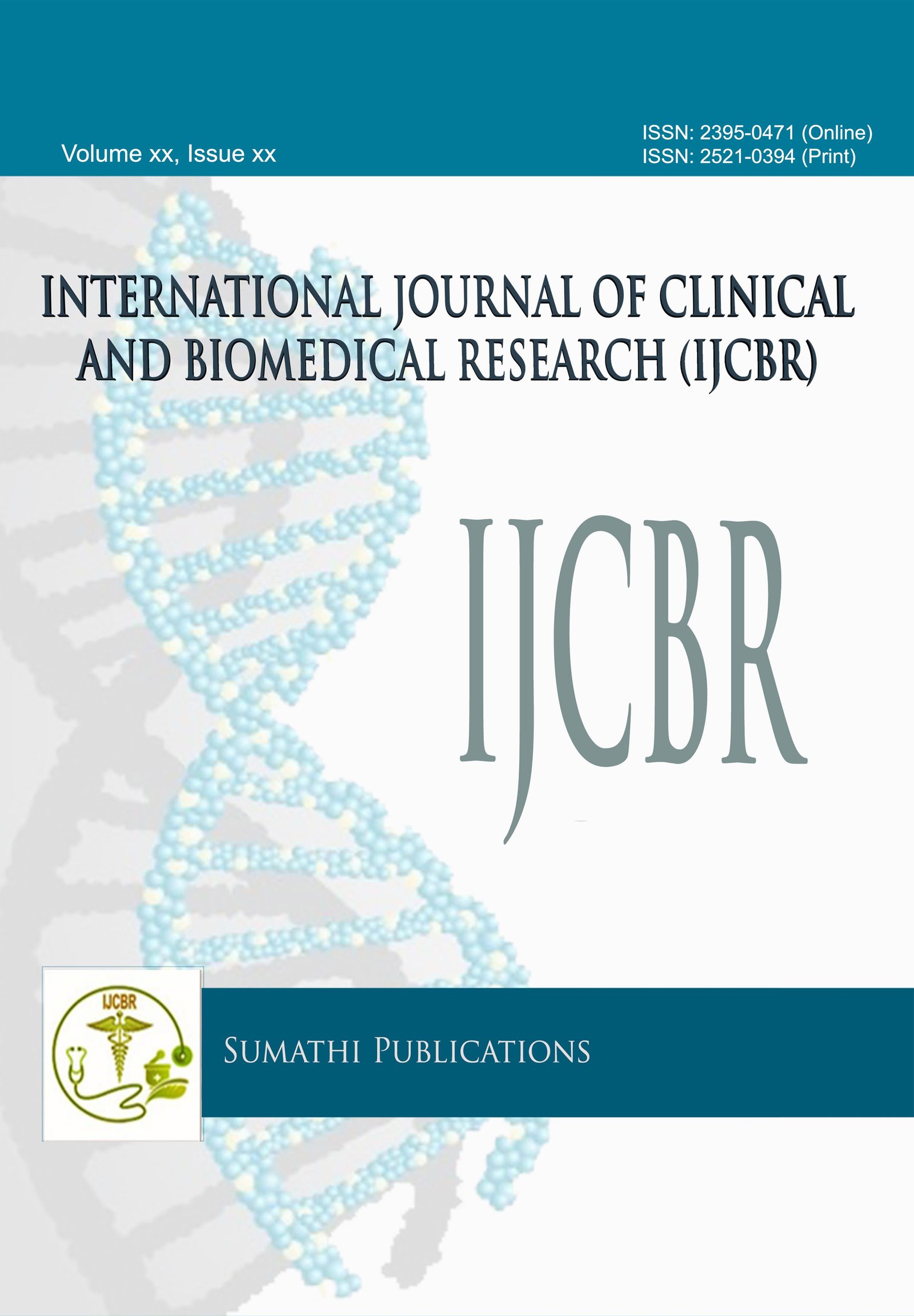EFFECTIVENESS OF CHEST PHYSIOTHERAPY IN PRONE POSITION ON RESPIRATORY FUNCTIONS IN VENTILATED NEONATES: A CASE SERIES
Abstract
Background: A child's risk of dying is highest in the first 28 days of life (the neonatal period). The central function of Chest physiotherapy in ventilated neonates is to assist in the removal of tracheobronchial secretions, remove airway obstruction, reduce airway resistance, enhance gas exchange, and reduce the work of breathing. Positioning is used with the aim to improve of ventilation/perfusion (V/Q) matching, lung volumes and mucociliary clearance and to reduce the work of breathing (WOB). Objective: To find out effectiveness of Chest Physiotherapy in prone Position on Respiratory Functions in Ventilated Neonates. Method: 6 ventilated Neonates (n=6) between day 1 to day 28 fitting the inclusion criteria were selected. They received chest physiotherapy in prone position which was given to each participant in for 240 minutes/day in two divided sessions of 120 minutes each with a gap of 6 hours (10am -12 pm & 6pm – 8pm) for consecutive three days. (i.e. six intervention sessions). Primary outcomes were Oxygen saturation (SpO2), Partial pressure of arterial oxygen (PaO2) & Peak Inspiratory Pressure (P.I.P.). Outcomes were recorded Pre & Post of Last (6th) 120 minutes session (0 Min & 120 Mins). Results: On comparison of three parameters in two groups using paired t test we found that there was significant difference (p < 0.05) in SpO2, PaO2 and P.I.P at baseline and post intervention. Conclusion: The study concluded that chest Physiotherapy combined with prone positioning is a cost effective, non-invasive and affordable intervention which has a significant impact on improvement of SpO2, PaO2 and PIPin ventilated neonates. A randomized clinical trial evaluating the efficacy of this intervention seems warranted.
Downloads
Downloads
Published
Issue
Section
License
The journal allows the author(s) to hold the copyright without restrictions and will retain publishing rights without restrictions.
The submitted papers are assumed to contain no proprietary material unprotected by patent or patent application; responsibility for technical content and for protection of proprietary material rests solely with the author(s) and their organizations and is not the responsibility of the journal. The main (first/corresponding) author is responsible for ensuring that the article has been seen and approved by all the other authors. It is the responsibility of the author to obtain all necessary copyright release permissions for the use of any copyrighted materials in the manuscript prior to the submission.
What are my rights as an author?
It is important to check the policy for the journal to which you are submitting or publishing to establish your rights as
Author. Journal's standard policies allow the following re-use rights:
- The journal allows the author(s) to hold the copyright without restrictions.
- The journal allows the author(s) to obtain publishing rights without restrictions.
- You may do whatever you wish with the version of the article you submitted to the journal.
- Once the article has been accepted for publication, you may post the accepted version of the article on your own personal website, your department's website or the repository of your institution without any restrictions.
- You may not post the accepted version of the article in any repository other than those listed above (i.e. you may not deposit in the repository of another institution or a subject-matter repository) until 12 months after publication of the article in the journal.
- You may use the published article for your own teaching needs or to supply on an individual basis to research colleagues, provided that such supply is not for commercial purposes.





